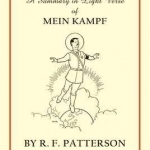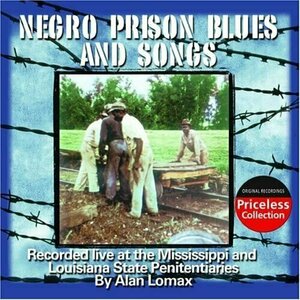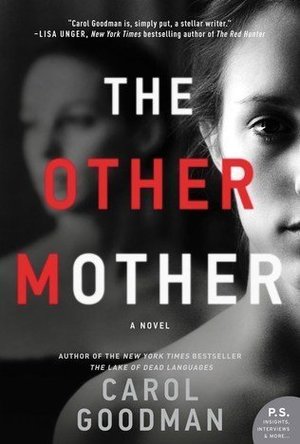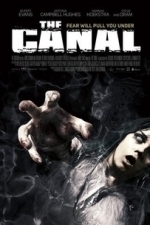
Famous Name Trains: Travelling in Style with the CPR
Book
Have you ever wondered, while sitting in traffic or waiting to board a crowded airplane, what it was...

A Taste of Love
Book
'I have starved in some of the most beautiful places in the world ...' The Irish Times food writer...
Natasha Khan recommended Negro Prison Blues and Songs by Alan Lomax in Music (curated)

Sheep Farming in Barnet by Toyah
Album
Cherry Red Records is delighted announce the long-awaited newly remastered and expanded deluxe...
Kristy H (1252 KP) rated The Other Mother in Books
Apr 10, 2018
Get ready: this book is a crazy, bewildering ride. It will also always have the distinction of being the novel I was reading on an airplane trip to San Diego when one of my five-year-old daughters threw up. Twice. So it will be memorable in several ways. :)
If you're looking for an easy, linear psychological thriller, this one may not be for you. This novel is confusing and crazy and makes you question everything you're reading. But it's an exciting, twisty thriller and a great, fast read (and a welcome distraction from vomiting children). Most of it is told in current-day descriptions from Daphne, along with excerpts from her journal from her postpartum mothers group. As Daphne meets her new boss, Schuyler, and becomes fascinated with a patient of her father's, Edith, we also eventually hear from Edith and excerpts from Edith's journal, too. The entire result is a wonderful, twisted, tale that has you frantically turning pages, trying to work things out and figure out who is who and what the heck is going on.
I don't want to reveal too much, as it's best going in without too many preconceived notions. The novel has a bit of gothic in it, as many of Goodman's do, with the mental hospital looming in the background. The idea of postpartum depression and motherhood is a theme running throughout, as well.
Overall, even though I was sometimes frustrated as I tried to work through this one, I wound up enjoying it. I was impressed at how things came together and enjoyed the wild ride I was on. I've loved Goodman since The Lake of Dead Languages and find myself looking forward to each new novel she releases. This one was different, but I was quite caught up in its characters and dark themes. Definitely worth a read.
I received a copy of this novel from the publisher and Librarything in return for an unbiased review (thank you!).

Mein Rant - A Summary in Light Verse of 'Mein Kampf'
R.F. Patterson and Heath Robinson
Book
R F Paterson was a great fan of Gilbert and Sullivan, and when Germany invaded Poland on 1st...

Star Wars™: Jedi Challenges
Games
App
Awaken your inner Jedi with Star Wars™: Jedi Challenges, a smartphone-powered Star Wars™...
Housewife of Horror (12 KP) rated The Canal (2014) in Movies
Aug 25, 2018
Platform: Shudder
Genre: Horror
Country: Ireland (IFB)
Running Time: 92 minutes
Written and Directed by: Ivan Kavanagh
Release Date: April 18th 2014 (Tribeca Film Festival)
Cast: Rupert Evans; Steve Oram; Antonia Campbell-Hughes; Hannah Hoekstra
After found footage, psychological horror films are a favorite of mine. I love how they pull you into the story, how up is down, left is right, I love to be enveloped by the plot. That tingly feeling I get on the back of my neck, the hairs standing up, I know then it has me in it’s clutches. I had that feeling with The Canal.
David (Rupert Evans) works as a film archivist, he is given a reel of footage from the police archives to watch and subsequently archive by his work colleague and close friend Claire (Antonia Campbell-Hughes), which turns out to be old crime scene footage of he and his wife’s current home. It was the scene of a shocking crime in 1902, the brutal murder of a cheating wife, their children and the nanny by the enraged father.
David suspects his wife Alice (Hannah Hoekstra) of having an affair, so he decides to follow her one night, only to unfortunately confirm his suspicions. He watches Alice while she is with her lover, and then picking up a hammer, he appears to mull over the idea of using it, only to quickly come to his senses. Walking away, he throws the hammer in to the canal on the way back to their marital home, where he has left their young son asleep in bed, alone in the house.
David, feeling sick from what he witnessed, as well as what he had considered doing about it, runs into the (quite dirty) canal-side public toilets. He hears something or someone coming in after him, and then see’s them, their feet, under the stall door, followed by fingers appearing to creep over the top of the door. He then proceeds to suffer from quite nightmarish visions that include the man, the husband, from the 1902 crime scene footage. He seems to be taunting David, whispering things to him. David, in a state of distress, manages to crawl outside, where he then witnesses what appears to be his wife being thrown into the canal; he just can’t see it very clearly or coherently. He later comes round on the floor of the bathroom, unnerved and disheveled, and makes his way home. The next morning, when he realises that Alice has not come home that night, David goes to the local police station to report her missing. Obviously, the police suspect David, “It’s always the husband” says the (inept) detective on the case.
The plot twists and turns, is it David? Is it the entity? Some great revelations about the grim history of the house come up throughout. It’s an interesting watch that comes to a disturbing conclusion.
A great little scene, that made me believe David was the killer, was during one of his viewings of the old footage. He stood up, in front of the projector, silhouetting him in front of the screen, making him appear to be a dark shadow. To me, this was the directors’ nod to David’s darkness within.
The Canal is a great psychological horror; it does very well to dig itself under your skin as you watch, and drag you in to this nightmare that David’s life has turned into. I was really impressed with the performance of Rupert Evans, tormented and devastated, he made David’s pain almost tangible. Watching him seemingly fall further into madness as the story progressed was quite frightening. I really felt for the nanny, she is a totally innocent girl who just wants to protect David and Alice’s son Billy, and can’t leave even when she knows she should. She gets dragged deeper and deeper in to the madness; everyone close to David is brought into this waking nightmare.
The ending is well, quite creepy and rather disturbing as I have said earlier. The story feels to me to have come full circle, and you can envision that it is a tormenting nightmare that will repeat itself over and over with future residents of the house for years to come.
4/5 – It’s rather worth a look if you like a good psychological horror
Lesley-Ann (Housewife of Horror)


